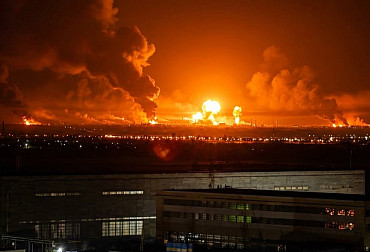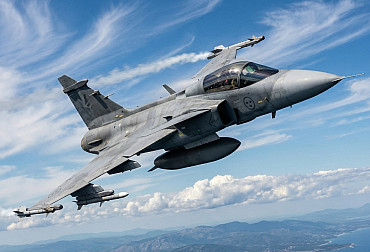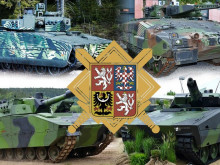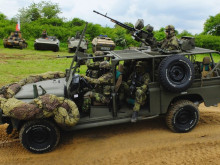The need to "review the defence of the Czech Republic" is both legitimate and acute
The government's programme statement for defence announces the intention: 'By 2023, we will update strategic documents (e.g. the Defence Strategy of the Czech Republic, the Concept for the Build-up of the Army of the Czech Republic 2030 and others)'. Among other things, in the chapter "Internal Security and Public Administration", a commitment was made: "We will develop a new Security Strategy of the Czech Republic, which will be based on the results of the newly conducted national security audit, the new NATO Strategic Concept and the EU Strategic Compass. The Security Strategy will update security threats and better define the responsibilities of the different components of the system, including the role of the National Security Advisor".
In the media, the Minister of Defence has expressed the need to update mobilisation plans and the Chief of the General Staff of the Czech Armed Forces lists as one of his priorities the implementation of a "military review of defence", linked to the review and possible update of scenarios for the provision of defence of the Czech Republic.
A number of other current or cumulative problems, whose solution goes beyond the conceptual and strategic level, call for a comprehensive solution to the further development of the system of defence provision of the Czech Republic, such as:
- the major qualitative and quantitative effects of the intended rearmament of the supersonic air force of the Czech Armed Forces with F-35 aircraft,
- insufficient short- and long-range ground-based air defence of the Czech Republic,
- rearmament of the tank force and considerations on expanding the number of all-military brigades,
- the absence of rocket launcher troops,
- the insufficiently addressed (and non-transparent) internal accumulated debt of the Ministry of Defence, estimated at around CZK 100 billion,
- the announced increase in the number of soldiers of the Czech Armed Forces to 30,000 and active reserves to 10,000,
- the limited possibility of "peaceful" registration of about 1.5 million defence-worthy population and insufficient provision of mobilisation development of the armed forces,
- the insufficient share of acquisitions of products of domestic industry and insufficient provision of production capabilities for supply in crisis situations,
- the need for a thorough analysis of lessons learned from the Russian invasion of Ukraine.
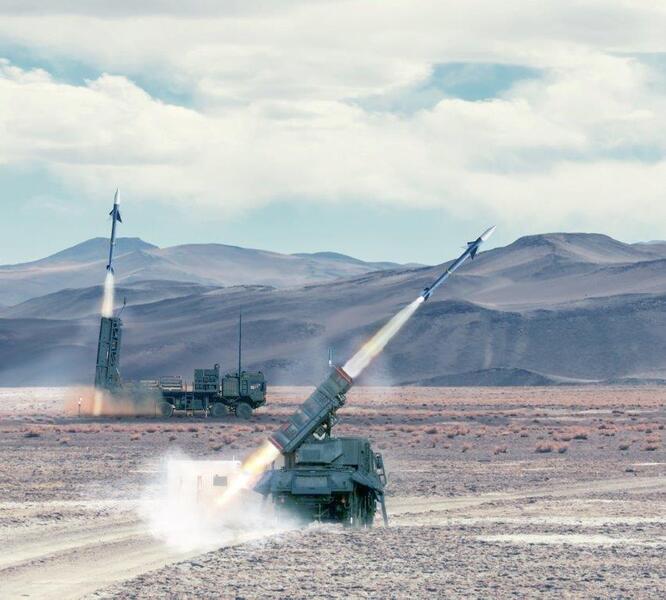 Picture: Based on the Czech-Israeli intergovernmental agreement of October 2021, the Czech Army should receive a total of four batteries of the SPYDER anti-aircraft missile complex by 2026. However, this number is low and the Czech Republic's total short and long range ground-based air defence is insufficient. | Ministry of Defence of the Czech Republic
Picture: Based on the Czech-Israeli intergovernmental agreement of October 2021, the Czech Army should receive a total of four batteries of the SPYDER anti-aircraft missile complex by 2026. However, this number is low and the Czech Republic's total short and long range ground-based air defence is insufficient. | Ministry of Defence of the Czech Republic
Against the background of the dramatic development of the security and economic situation, the above-mentioned reasons confirm the justification and urgency of the consideration of a deeper analysis of the entire system of ensuring the defence and security of the Czech Republic.
However, in the spirit of the comprehensive nature of defence provision, it is essential to ensure a thoroughly systemic approach for such a measure, including all areas and elements of the Czech security system. A consistent methodological preparation, supporting military-technical and economic analyses and, in particular, interaction with all interested bodies (including NATO and the EU) and the professional community are also a prerequisite. Only such an approach will ensure sufficient efficiency and transparency of the process and the achievement of the necessary consensus over its long-term conclusions.
In this context, it is necessary to draw attention to the persistent absence of a long-term development plan for the MoD, which would, among other things, provide a transparent answer to the extent to which the announced 2% of GDP for defence spending will cover the long-term defence needs of the Czech Republic, and which is at the same time a prerequisite for the realism of all subsequent plans. Long-term planning of the development of the armed forces is also of particular importance for the orientation of the domestic defence industry, as an extremely important segment of our economy. Particularly at the present time, the need for long-term conceptual and legislative measures to support its competitiveness and to preserve the necessary 'wartime' production capacities is also confirmed.
It follows from the above argumentation that the need to carry out some form of "review of the defence of the Czech Republic" is both legitimate and acute. Its ambition should be to evaluate the implementation of the so-called "Tvrdík reform" (Jaroslav Tvrdík, former Ministers of Defence) of 2003 and the White Paper on Defence of 2011. After all, similar measures of this kind are periodically carried out in the framework of NATO defence planning, with which the process of our "national" review must be consistently linked. An integral part of the 'defence review' should be the generation of concrete proposals for amendments to defence and crisis legislation.
The whole process of the review should be logically set up to be based primarily on the update of the Security Strategy of the Czech Republic and the Defence Strategy of the Czech Republic, the main output of which will be a possible update of the so-called political-military ambitions as the main "political assignment" for the development of the capabilities of the Czech Armed Forces.
Subsequently, the key starting point and criterion for the "defence review" is the update of specific most probable future operational or crisis scenarios, defined on the basis of (possibly updated) political-military ambitions, in which the Czech Armed Forces should be able to operate effectively in the long term. Only from their thorough analysis can the requirements for the development of forces be transparently generated, i.e. in particular what units, what armaments (and numbers), what extent of security, supplies, etc., the Czech Army will most likely need in the future. The NATO Defence Planning Process is incidentally based on such a methodology. Therefore, its application will not only ensure compatibility with the outputs of the Alliance Defence Planning Process and optimal use of all resources, but will also provide transparent justification of all requirements for the development of force capabilities and relevant acquisition projects.
However, a necessary condition for the realism of all concepts and plans is a rigorous cost analysis or modelling of the aggregate cost requirements and the corresponding forecast of available financial resources on a year-by-year basis over the long term.
In conclusion, I would like to state that the above argumentation suggests that the time is ripe for a more radical analysis of the state and perspective of the Czech defence provision and that a comprehensive "defence review" with a subsequent update of the relevant conceptual, strategic and planning documents and laws would be the optimal way of implementation.
Ing. Oldřich Hoďánek
After graduating from the Military Academy in Brno (1972), he served as a professional soldier in a number of positions in the field of technical support of troops up to the deputy commander of the tank division for armaments. Since 1993 he has worked at the Ministry of Defence of the Czech Republic, where he participated in the development of the defence planning system and the preparation of departmental conceptual, planning and evaluation documents. He completed a postgraduate course in logistics management at the US Army Logistics Management College and an international course in defence resource management at the US Naval Postgraduate School. He retired in 2009 as a member of the Permanent MoD Delegation to NATO in Brussels. He is still active in the security community of the Czech Republic.












